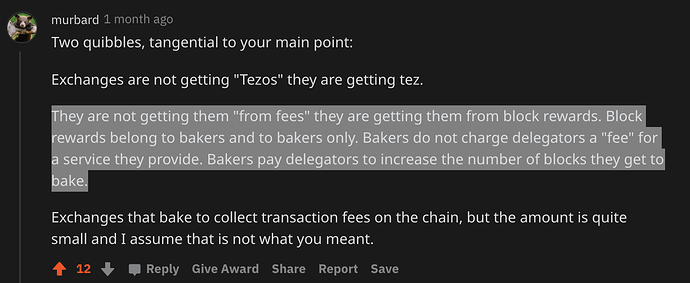The OP seems to want equality, between delegators and delegates in the terms of what they both earn, he doesn’t take the fact, that the delegates are putting XTZ in bonds and those are frozen, those bonds are at risk, the delegators have the advantage they are not risking their XTZ and their XTZ is LIQUID.
This is a socialism proposal. The OP seems to think that this will lead to centralization, i will argue the opposite, if you respect the ownership rights of bakers, which is their ability to VOTE and their incentives, then more people will be attracted to run a baker node, leading to more descentralization.
The OP says Bakers will join together and vote to form a cartel, this is just too much of a excuse for implementing socialism equality into tezos, governance will fail, nobody will want to run a baker node then. I remind the OP that Delegators can also associate together and form their own bakery and represent themselves in the governance system and get the same incentives as bakers, IS NOT A CLOSED SYSTEM.
I define the concept of blockchain as a global and opened association of private individuals, bakers are business owners (business owners always risk they money to open a business), delegators are the workforce since they provide bakers the opportunity to find more blocks in less time, consumers are dapp users since they pay gas fees. Bakers and delegators reach an agreement of which % fee is going to be paid to the workers (delegators), these are VOLUNTARY agreements. People seems to think bakers are being paid, and in reality, if you think about it, it is the opposite, bakers pay delegators for their workforce, which they put in the form of XTZ coins, that are NOT at risk and NOT frozen, like the delegates.
I quote Arthur for this:
This socialism mentality has to stop, this is the same kind of proletariat revolution mentality that led to socialism, in which workers wanted privileges and resulted in a decrease in property rights for business owners. Who were actually shooting themselves on their own feet because the day they want to start a business (bakers) they will face the same obstacles by having to comply with “rights of the proletariat” (rights to a collective) which by definition violates property rights (rights of the individual).
